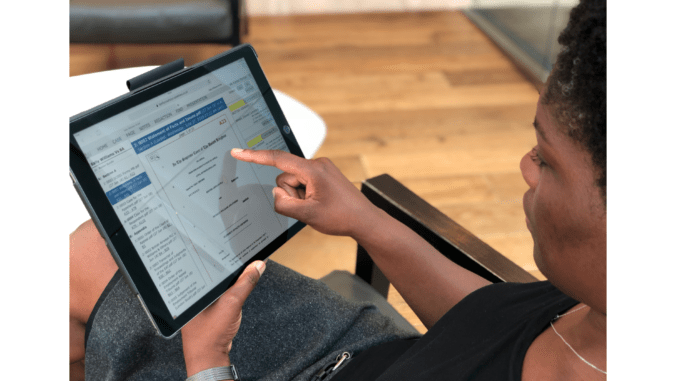
How Africa’s Courtrooms Became As Advanced As Anywhere In The World
By Jon McNerney, CEO, CaseLines
At the beginning of the year, we launched our first significant partnership in Africa with the COMESA Court of Justice for the Common Market for Eastern and Southern Africa.
Covering twenty-one Member States, the supra-national COMESA Court has now implemented a digital justice system using the most advanced software we have produced.
As well as this, Kenya’s Court of Appeal is also participating in a proof of concept as part of a pro-bono initiative, while South Africa has begun upgrading all of its Civil courts.
The huge appetite for change and improvement has now put African courts at the forefront of the legal technology drive, with legal technology as advanced as anywhere in the world.

A significant reason for this is in how digital justice systems eliminate the need for paper in the trial environment. Paper is a much bigger burden for courts than people are aware.
In the UK alone, the amount of paper previously used by the courts would reach the height of the London Shard every four days if stacked from the ground up.
The UK judicial system generated a million pages of documents a day, 365 million pages a year, prior to the implementation of Crown Court Digital Case System.
Few organisations also realise the true lifetime cost of handling this much paper. These include the staff cost of filing and retrieval, the space costs of storage and the delays of using couriers and the DX to ship paper.
While an individual piece of paper initially costs well below 1p, internal research from CaseLines has showed it can spiral to as high as 25p once these factors are included.
Covering a great distance, the courier bill for moving paper around faced by the COMESA Court of Justice’s member nations was previously costing thousands of dollars each month.
In the UK alone, the amount of paper previously used by the courts would reach the height of the London Shard every four days if stacked from the ground up.
By introducing digital bundles, case data is instead stored in one place, which everyone can gain fast access to on any device, making it quick and easy to navigate, annotate and direct parties to specific pages.
These collaboration tools enable enhanced pre-trial preparation amongst all stakeholders in Africa, including judges, lawyers and witnesses, with multimedia evidence and secure role validated video conferencing for virtual hearings. Security is also right at the heart of the platform.
The secure cloud-based platform gives users at COMESA complete control over who may or may not access a case. It also provides a full audit trail of all actions, so you know where sensitive data is at all times, while also ensuring there is no way evidence can be lost or tampered with, protecting the integrity of the institutions that use it.
Advances in cloud software, such as the Microsoft Azure cloud platform that supports CaseLines, mean we can reach systems anywhere globally and provide free, instant software upgrades.
Key to the transition though has been putting judges at the forefront of modernisation, allowing them to build an efficient courtroom, but in a format that feels familiar. Previous paper-based working practices didn’t allow judges to properly prepare for cases.
Digital justice means judges can now log into case files securely from their home offices, improving preparation, cutting unnecessary travel and speeding the process of preparing judgments after a hearing.
In addition, an unexpected early benefit seen in the UK’s Crown Court was a 50% reduction in hearings as a result of earlier access to evidence and more early guilty pleas. Using digital software has also made securing testimony much easier.
Also, policemen need no longer take time off work to travel or attend court, but can provide a digital testimony instead, while vulnerable witnesses can be spared the difficulties of being present at a trial.
Having an effective and functioning legal system isn’t just good news for those that deal directly with courts, but for societies and their businesses too.
Digital justice systems are not only aiding improvements in the rule of law, but also assisting countries in meeting the UN’s Sustainable Development Goal 16, which is to provide access to justice for all and ‘build effective, accountable and inclusive institutions at all levels’.
It’s a big step forward in addressing technology needs in Africa.
(Thanks for the educational article, Jon. Always good to share knowledge about what’s going on across the wider legal tech world.
And, for those who are curious, CaseLines is a SAAS provider of software for the electronic preparation and presentation of evidence, legal bundles, documentary and video evidence.)

1 Trackback / Pingback
Comments are closed.